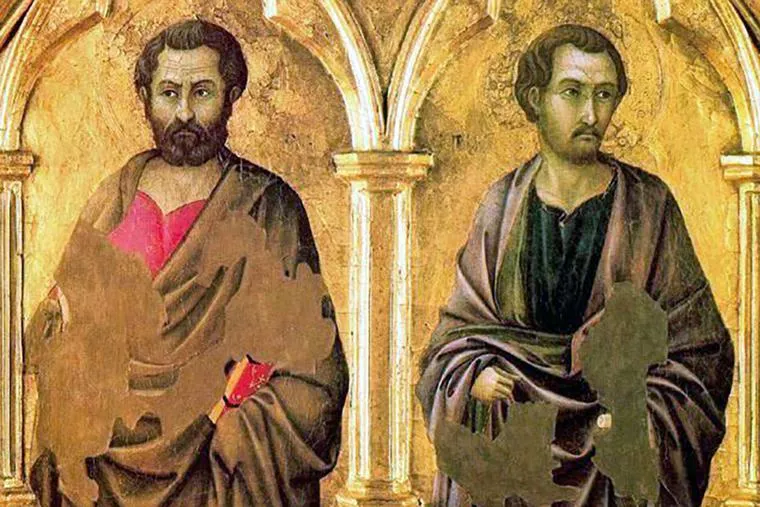Message of Abbot Paul - Friday 28th October 2022
Abbot Paul • October 28, 2022

Today we keep the feast of the Apostles Saints Simon and Jude. We read in the Gospels that Simon was known as the Zealot and that Jude or Judas was the son of James, not one of the two other apostles who bore the name James. He is also called Judas Thaddeus. According to tradition, they preached the Good News in Persia, where they were martyred. Perhaps for this reason they disappear into the mists of history, yet are always honoured together. In fact, some of the earliest Christian communities were to be found in Persia and in neighbouring Iraq, a number of which survived and flourished until recent wars drove them to emigrate or face extinction. When monastic life appeared in the primitive Christian world, one of the countries where monastic life flourished was Persia, modern Iran. The disappearance or eradication of Christianity from these countries is an inestimable tragedy for the Body of Christ, the Church. We should pray earnestly for all those communities surviving in the diaspora and support them where and when we can. We should also be praying for the people of Iran, fighting for their civil freedoms and the right to wear what they want. What a sad nation this noble people is being forced to become. News from Ukraine and Russia continues to sadden and horrify us. Whatever happened to the hopes for the new Millennium? Lord, have mercy on your people and protect them from all harm.
Our Gospel reading for the feast comes from Luke, (Lk 6: 12-19), and tells us how Jesus came to choose his twelve apostles. “Jesus went out into the hills to pray; and he spent the whole night in prayer to God. When day came, he summoned his disciples and picked out twelve of them; he called them ‘apostles’: Simon whom he called Peter, and his brother Andrew; James, John, Philip, Bartholomew, Matthew, Thomas, James son of Alphaeus, Simon called the Zealot, Judas son of James, and Judas Iscariot who became a traitor.” Jesus spent the whole night in prayer before making the decision to choose twelve apostles from among his many disciples. Other than being the result of prayer, we are not given any reasons why he chose these and not others to be his apostles, those he was to send ahead to prepare the way and ultimately to go in his place once he had ascended into heaven. Twelve, of course, was an important number in the Hebrew scriptures, because of the twelve sons of Jacob, who gave name to and were the fathers of the Twelve Tribes of Israel. There then follows a summary of what came next, the preaching of Jesus to a large crowd and the healing of the sick. “He then came down with them and stopped at a piece of level ground where there was a large gathering of his disciples with a great crowd of people from all parts of Judaea and from Jerusalem and from the coastal region of Tyre and Sidon who had come to hear him and to be cured of their diseases. People tormented by unclean spirits were also cured, and everyone in the crowd was trying to touch him because power came out of him that cured them all.” To begin with the Apostles accompanied Jesus, but eventually they too would preach and heal the sick. Gradually they would take his place, although they could only carry out their ministry because Jesus was with them. As St Paul wrote, “It is not I who live, but Christ who lives in me.” And that was the work of the Holy Spirit.









